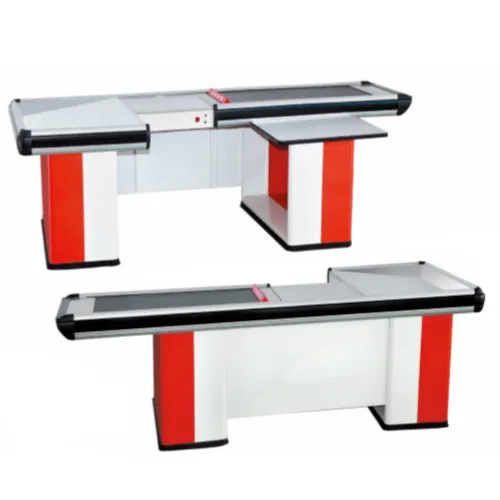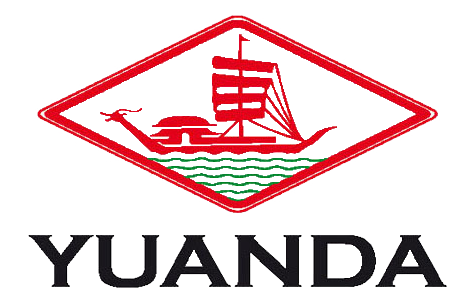The Evolution of Supermarket Checkout Solutions
Traditional vs. Modern Counter Designs
Checkout counters have come a long way since they first appeared in stores back in the day when everything was handled manually at the register. The old school versions tended to be pretty big and basic, all about processing cash payments efficiently. These days though, retailers are thinking differently about counter design. Modern setups blend looks with practicality, featuring layouts that make sense for both shoppers and staff alike. When counters are ergonomically designed, it just makes sense for everyone involved. Customers tend to feel better about their experience, cashiers work more comfortably, and this actually translates into real business benefits. Some retail chains have noticed sales going up around 15% after updating their checkout areas, which speaks volumes about how small changes can make such a difference in store performance.
Customer Expectations Driving Innovation
We've seen some pretty big changes in how people shop lately, which has forced stores to rethink their entire checkout game. More folks want to get in and out quickly these days, something that's been building over time as our expectations just keep rising. That's why so many places now have those self-checkout stations and let us pay through our phones. Take Walmart for instance they completely overhauled their registers last year after tons of complaints about long lines during holidays. According to recent market research, around three quarters of shoppers actually like faster checkouts better than standing in line for ages. This shift isn't just convenient it's becoming a standard expectation across the retail world right now.
Understanding these dynamics equips retailers to enhance the checkout experience, offering seamless and personalized shopping journeys that cater to today's demanding consumers.
Essential Features of Custom Checkout Counters
Space Optimization Techniques
Getting the most out of available space matters a lot when creating custom checkout counters because it affects how efficiently things run and what customers actually experience. Retailers are increasingly turning to modular designs that fit into all sorts of store environments. These flexible setups work wonders in tight spaces or stores with odd floor plans where traditional counters just won't fit right. Take grocery stores for example many have seen their sales go up after switching to these adaptable systems since there's less crowding around registers now. The difference isn't just theoretical either some major supermarket brands attribute part of their recent growth to better organized checkouts that keep lines moving smoothly throughout busy shopping hours.
Durability and Maintenance Considerations
For retailers thinking about checkout counters, how long they last and how easy they are to maintain matters a lot. Stainless steel is one material that stands up well against everyday scratches and bumps, making it a solid choice for busy stores. When stores invest in good quality materials upfront, they save money over time because there's less need for repairs or replacements. We've seen from experience that stores with tougher counters tend to run better overall since employees spend less time fixing things and more time helping customers. Plus, durable setups mean fewer parts ending up in landfills later on. Stores that care about their bottom line also care about the planet, so choosing counters that stick around longer makes both financial and environmental sense.
Technology Integration in Checkout Systems
AI-Powered Visual Recognition
Visual recognition powered by artificial intelligence is changing how stores handle checkouts, making things faster while also being more accurate. The tech really cuts down on mistakes people make when scanning items, which means better service for customers overall. When AI spots products automatically, shoppers spend less time standing at those self-checkout lanes. Retailers see this as a big deal because it saves money in the long run through improved efficiency. Stores across the country are adopting these smart solutions to cut down on shrinkage problems and streamline their operations. As competition grows tougher in retail, businesses are finding that investing in AI makes sense both from a cost perspective and for keeping up with consumer expectations around convenience.
RFID vs. Barcode Scanning Efficiency
When we look at RFID versus traditional barcodes, there are some pretty significant differences worth noting. RFID systems can scan dozens of tags all at once, which cuts down on those long lines at checkout counters. Barcodes require each item to be scanned individually and need direct visibility between scanner and tag. The upfront price tag for RFID equipment does run higher than basic barcode scanners, but many businesses find that the time savings alone make up for the extra expense within months. Several major retail chains have already started switching over to RFID technology across their stores. As scanning tech continues evolving, early adopters might gain an edge in customer satisfaction while preparing for whatever comes next in automated checkout solutions.

Operational Benefits of Customized Solutions
Reducing Queue Times and Staff Costs
Getting rid of long lines at checkout is pretty much essential these days if stores want happy customers. Stores that implement custom checkout systems see real improvements in how fast people get through their purchases. When retailers integrate things like artificial intelligence and smart data tools into their payment systems, it makes everything run smoother behind the scenes too. Shorter wait times mean shoppers leave satisfied, which translates directly to better bottom line results because transactions happen quicker. The faster things move through checkout, the more customers can be served during peak hours. Retailers who invest in efficient checkout tech often find they need fewer staff members during busy periods while still maintaining good service standards. Some stores even report increased sales after implementing these kinds of changes simply because customers don't mind spending money when they aren't stuck waiting forever to pay.
Loss Prevention Mechanisms
At today's retail checkouts, keeping tabs on potential losses remains essential for stores trying to cut down on shrinkage while boosting their bottom line. Retailers are turning to tech solutions such as RFID tags and inventory tracking software to stop shoplifting incidents and keep better control over stock levels. Stores that invest in solid loss prevention measures typically see shrinkage drop by around 30% according to industry reports, which directly translates to higher profits. Many retailers have found that combining these technologies with staff training programs creates the most effective defense against inventory loss. For grocery chains and big box stores especially, making sure these systems are properly integrated throughout all store locations has become a top priority in recent years.
Design Considerations for Modern Checkout Areas
Customer Flow and Experience Mapping
Getting customers moving efficiently through checkouts matters a lot these days. When shoppers can navigate store spaces without getting stuck or waiting forever, it makes everyone's day better. Retailers have started using something called experience mapping to track how people actually interact with stores. This helps them spot problem areas where folks tend to bunch up or slow down. Stores that get this right see real benefits too. Research shows when the flow works well, customers are more likely to come back again because they remember the smooth exit rather than any frustrations along the way. Some businesses report up to 30% improvements in repeat visits after redesigning their checkout areas based on these observations.
Multi-Purpose Counter Functionality
Modern checkout counters are increasingly versatile stations catering to various customer needs. Beyond transactions, they handle promotions, inquiries, and returns efficiently. Multifunctional capabilities streamline operations and improve customer satisfaction by offering a one-stop solution for diverse needs. Implementing these designs increases speed, satisfaction, and consumer preference for multifunctional solutions.
Future Trends in Checkout Counter Solutions
Mobile Integration and Contactless Evolution
Mobile integration and contactless payment are pivotal in enhancing checkout convenience. With projections indicating a shift towards cashless transactions, mobile payment systems are essential for modern checkout counters. Integration of user-friendly systems facilitates secure and seamless transactions, evolving to meet the demands of fast-paced retail environments.
Sustainability in Counter Manufacturing
Sustainable checkout counter design is rising as consumers demand eco-friendly practices. Using recycled materials aligns with consumer preferences, reducing environmental impact while fostering brand loyalty and attracting eco-conscious customers. This trend towards sustainability engages consumers and enhances retention, underscoring the importance of green practices in retail solutions.
FAQ
What are traditional checkout counter designs like?
Traditional checkout counters were bulky and functional spaces focused on cash exchanges. They have evolved to incorporate ergonomic layouts for enhanced shopper experiences.
How can custom checkout counters optimize space?
Using modular designs helps adapt to different retail spaces, facilitating smooth item and customer flow, enhancing the shopping ambiance and store operations.
What role does AI play in modern checkout systems?
AI-powered visual recognition improves checkout speed and accuracy, enhancing customer service by automatically detecting items and reducing self-checkout time.
Why are RFID systems considered more efficient than barcode scanning?
RFID technology scans multiple tags simultaneously without needing line-of-sight, speeding up checkout processes compared to the slower barcode method.
How do customized solutions reduce queue times?
Implementing tailored technologies like AI and data analytics streamlines checkout processes, efficiently managing staff operations and accelerating transaction times.
Why is sustainability crucial in checkout counter design?
Eco-friendly materials in counter design reduce environmental impact, align with consumer preferences, and foster brand loyalty and retention among eco-conscious customers.

